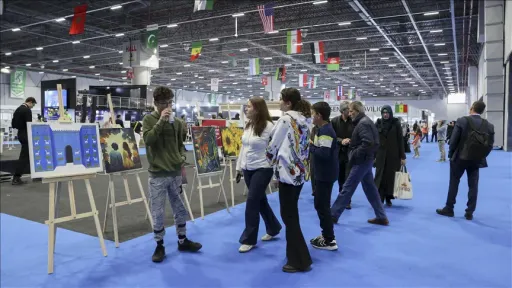What the World talk about Discrimination in 2022?

In 2022, there were many cases of discrimination in the world based on racial and ethnic affiliation, religious identity, gender and income inequality. Xenophobia and anti-Islamism, which increased due to the refugee and migrant crisis, were also on the agenda in 2022.
The long-imposed headscarf ban in the Indian state of Karnataka began to be debated on January 1 when Muslim students at the state-owned Udupi Women's College entered classes wearing headscarves. In other schools in Karnataka, when Muslim female students entered classes wearing headscarves, Hindu students reacted and started to enter the classes with saffron-colored shawls. A meeting between school administrators, government officials, students and their families in Udupi on January 19 failed to reach a solution, with 5 female students protesting outside the school. The state government set up an expert panel on Jan. 26. Students wearing headscarves were asked to follow the uniform rules and enter school without headscarves until the panel gave their opinion. The students appealed to the Karnataka Supreme Court on January 31, arguing that the headscarf is a fundamental right provided by the Indian constitution. The court said she could not enter schools wearing a headscarf until the verdict was announced. The presiding judge also instructed the authorities to continue training, which had been suspended due to tensions over the headscarf ban in the state. The high court has been at odds over two judges' differing opinions on the headscarf ban in schools.
An investigation published Jan. 10 by the Washington Post found that more than 1700 members of Congress in the U.S. in the 18th, 19th, and 20th centuries owned black slaves at some point in their lives.
The mass mobilization that occurred as a result of the war, which began with Russian President Vladimir Putin's declaration of a "special military operation" against Ukraine on February 24, led to serious problems related to migration and migrants.
The discriminatory policies of the European Union (EU), which has accepted millions of Ukrainians, against 1.1 million people coming from Syria, where the civil war has been going on for 12 years, have been reflected in international reports. Institutions such as the United Nations (UN) and Amnesty International have criticised the EU's discriminatory policies. 2022 went down in history as the year in which the Russian-Ukrainian war demonstrated Europe's policy of selecting refugees. Meanwhile, thousands of Middle Eastern and African asylum seekers who were denied admission to Europe because they were not Ukrainians died in the Mediterranean or were forcibly pushed back by the Greek coast guard. EU border protection agency Frontex has been criticised for using violence against refugees and sinking migrant boats.
On March 21, US Secretary of State Antony Blinken announced that they recognize the crimes committed by the Myanmar military against the Rohingya Muslims as "genocide". On July 22, the International Court of Justice rejected all of Myanmar's objections in the Gambia's "investigation of genocide against Rohingya Muslims" case against Myanmar.
In Ethiopia, the Supreme Council for Islamic Affairs in Addis Ababa said in a statement on April 26 that 21 people were killed in an attack by unknown persons in the northern city of Gondar, described as a "planned massacre", destroyed some mosques and assets belonging to Muslims in the city, and raped women.
The European Union (EU) Border and Coast Guard Agency (Frontex) has been found to be involved in pushbacks and abandonments at sea by Greek elements of irregular migrants in the Aegean on April 28th. According to a joint study by Lighthouse Reports, Der Spiegel, SRF Rundschau, Republik and Le Monde, Frontex's database included records of hundreds of irregular migrants being pushed back in the Aegean. Frontex Director Fabrice Leggeri resigned on 29 April.
The death on September 16 of 22-year-old Mahsa Emini, who was taken to hospital after being detained by Irshad patrols known as the "morality police" in Iran's capital Tehran for "not following the rules of headscarf", sparked protests not only in the country but also in many cities of the world. Official sources have reported that civilians and security forces have died in months of protests and incidents, but no clear information has been given about the death toll. The Norwegian-based Iranian Human Rights Organization announced on Nov. 22 that 416 people were killed in the demonstrations. On September 25, the European Union called for non-violence and for public access to the internet to be allowed to quell the protests. Emini's death was protested in many cities around the world. Iran was expelled from UN Women on December 14 for violations of women's rights.
Pope Francis, the spiritual leader of Catholics and head of state of the Vatican, apologized on July 25 for the abuses and mistreatment of indigenous children in church boarding schools in Canada.
Following the European Court of Justice's October 14th ruling that banning employees from using "religious, philosophical and spiritual symbols" is not discriminatory, employers in EU countries may introduce arbitrary headscarf bans.
In October, footage of torture in the Indian state of Gujarat in which Muslim youths were beaten to a pole by police for allegedly "throwing stones at a Hindu ceremony" sparked outrage on social media.
In Israel's snap election on November 1st, the right-wing bloc led by Likud Party leader Benjamin Netanyahu won the election. The coalition government formed with the support of the right-wing extremists made Ethiopian Jews and Jews, especially the Palestinians, nervous.
On November 5, Jordan Bardella, a member of the European Parliament, was elected head of the National Union, the far-right party that has given the greatest support to practices that restrict the freedoms of Muslims in France, replacing Marine Len Pen. Despite the name change in the party, the party's anti-Muslim policies will not change.
The first hearing of the case at the Cape Town High Court on November 7 regarding the suspicious death in custody of Imam Abdullah Haroun, a symbol of the fight against the "apartheid" regime in the Republic of South Africa, was evaluated as "confronting the country's racist past" and "healing the wounds inflicted by the apartheid regime".
At the 2022 FIFA World Cup in Qatar on November 21, despite the principle of zero tolerance against all forms of discrimination, many hate speeches were used both on and off the pitch and on social media. Throughout the tournament, especially Middle Eastern and black footballers were the target of racist comments. Western media, which argued that the tournament should be taken from Doha until the day the organization started with allegations of human rights violations, targeted Qatar with "racist", "anti-Muslim" and "orientalist" language. The Moroccan National Team and its fans, who reached the semi-finals for the first time in their history with their performance in the group and final legs of the World Cup, were also subjected to racist attacks. French national team footballers of African descent have also been the target of racist comments.
AA







